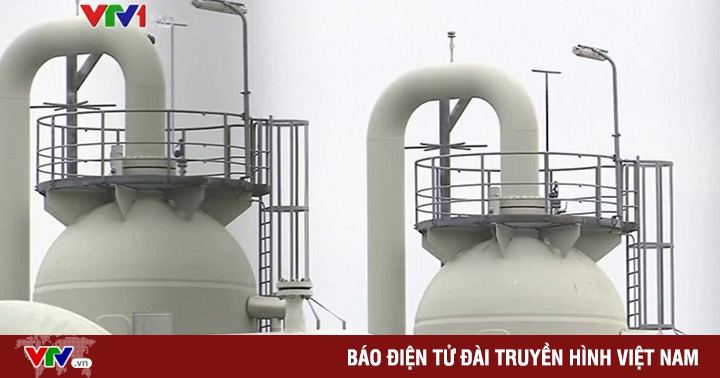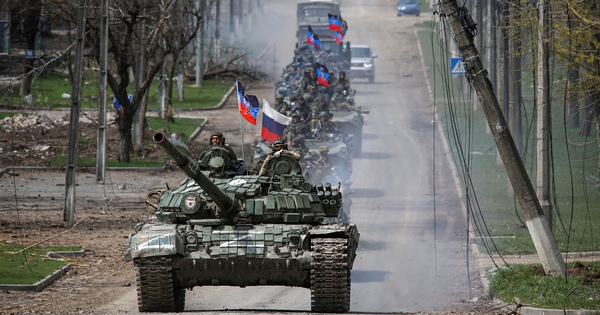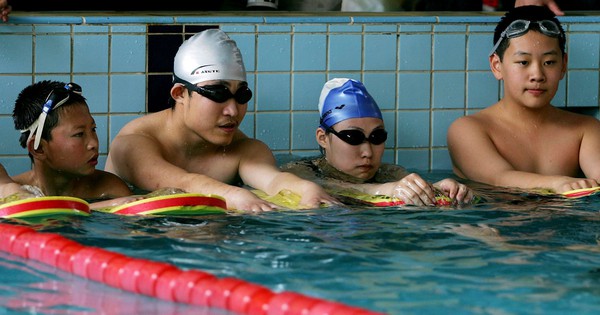Ukraine wants to trade neutrality for solid NATO-style security guarantees, but Western countries have not shown themselves willing to commit to this.
David Arakhamia, the leading negotiator of Ukraine, said on April 2 that Russia had accepted Ukraine’s position in its proposal for a solution to the conflict, with the exception of the Crimean peninsula issue. One of the important points of this proposal is the option of Ukraine declaring neutrality, giving up its ambition to join NATO.
However, the condition that Ukraine offered for this concession was security guarantees from another group of countries. “We will be neutral, but the idea is a guaranteed neutrality,” Arakhamia said.
Kiev’s proposal requires countries such as the US, UK, France, Germany, Italy and Turkey to act as a security guarantor for Ukraine when it declares its neutrality and is ready to react to any acts of aggression. sovereignty violations against them, in the same way that NATO does Article 5 with member states. Article 5 of NATO stipulates that any attack on one member state is an attack on the whole bloc and forces the military alliance to act.
“That’s what we call NATO’s Ukraine“, Arakhamia declared.

Members of the Ukrainian Self-Defense Forces at a security checkpoint in Kiev in early March. Photo: NY Times.
Ukraine’s senior negotiator Mykhailo Podolyak told NTV television on March 31 that the country had also held preliminary talks with the US, UK, France, Israel and Turkey on an agreement to sponsor neutrality. .
Podolyak argued that these so-called “patrons” countries would have a legal obligation under an international treaty to provide weapons, forces or financial help if Ukraine were attacked after declaring it. neutral.
“The meaning of this treaty is that a country that wants to attack Ukraine will know that Kiev is not alone, when other countries are standing by Ukraine, with their armies and weapons,” he said, expressing confidence. thought that such a form of security could help end conflict.
Turkey, which has good relations with Ukraine and is acting as a mediator in conflict resolution negotiations between Moscow and Kiev, received a proposal to act as a security sponsor on March 17, but Ankara so far has not expressed a clear opinion. The administration of President Recep Tayyip Erdogan neither approved nor opposed the proposal, but expressed support for peace talks.
Israel has also shown no support for Ukraine’s idea. “At this point, Israel does not believe it will be the guarantor of Ukraine’s security,” said a senior Tel Aviv official. “We are willing to assist the parties in reaching an agreement through confidence-building measures and other efforts.”
U.S. president Joe Biden has not yet commented on the proposal. White House communications director Kate Bedingfield on March 30 declined to say whether Washington was willing to act as a security guarantor for Ukraine.
“We regularly discuss with Ukraine how we can help them ensure their security and sovereignty,” she said. “But there’s nothing specific about security that I can say at the moment.”
Lawmakers America expressed skepticism about the idea of Ukraine. Senator Dick Durbin, the second-most senior Democrat in the Senate, called the proposal “a bit premature”.
Senator Jim Risch, the top Republican member of the Senate Foreign Relations Committee, believes the proposal to guarantee Ukraine’s security is possible, but far from implemented.
“We used to do this,” Risch said, referring to the 1994 Budapest Memorandum, when Ukraine gave up its nuclear weapons in exchange for security guarantees from the West. “But how did it work?”
The Budapest Memorandum was signed on December 5, 1994 at the summit of the Organization for Security and Cooperation in Europe (OSCE). Under this agreement, Ukraine voluntarily destroys or transfers nuclear missiles to Russia. In return, Ukraine will receive financial support from the US, cheap energy from Russia, and guarantees of “respect for independence and borders”.
“There is no provision in this memorandum of understanding that if one country violates the agreement, other countries will respond militarily,” said Gerhard Simon, an expert on Eastern Europe at the University of Cologne in Germany. .
Some Western leaders have expressed support for some form of security guarantee for Ukraine, but no one has made it clear how it will unfold.
“We will carefully consider anything that the President of Ukraine Volodymyr Zelensky deemed necessary. But we will not unilaterally apply the commitment that NATO reserved for members of the alliance,” British Deputy Prime Minister Dominic Raab said, expressing skepticism about the proposal to ensure security for a non-member country. NATO.

The appearance of the Ukrainian battlefield after a month of fighting. Click on the picture to see details.
Ian Bond, foreign policy director at the Center for European Reform, says the problem with Ukraine’s proposal is that no country wants to guarantee Kiev’s security by deploying military forces against Ukraine. against violations of the agreement, similar to how NATO applies Article 5 of the bloc’s treaty.
German Prime Minister Olaf Scholz on March 30 told President Zelensky that Berlin was “ready” to act as a guarantor of Ukraine’s security, according to German government spokesman Steffen Hebestreit. However, Hebestreit added that it was too early to discuss such commitments.
A senior German government official later said that Ukraine’s proposal was only in the early stages of discussion, adding that it could only be implemented if Russia was part of it.
France also left the door open to support the idea of Ukraine being neutral and receiving security guarantees from another group of countries. However, Paris is not willing to sign a security guarantee with a mechanism similar to Article 5, according to a source with knowledge of the matter.
The person added that Russia would likely not agree to any agreement that would require France and other permanent members of the United Nations Security Council to guarantee Ukraine’s security.
According to commentators Jared Malsin, Lindsay Wise and Bojan Pancevski of WSJthe reluctance of Western countries to Ukraine’s proposal, which establishes a security umbrella mechanism like NATO, shows that the parties have not yet been able to find a common voice on a solution to the conflict.
Jo Adetunji, commentator of Conversation, said that Moscow and Kiev still have many differences in their views on ensuring neutrality for Ukraine. What Russia wants is to ensure Ukraine remains neutral, while what Kiev wants is to ensure its territorial integrity.
These two security aspirations are not the same, requiring different sponsors and assurance mechanisms. At that time, the parties will have to conduct two separate negotiation methods. One is a negotiation between Russia and Ukraine on the nature of neutrality, and the other is a discussion between the two countries with parties that can participate in security guarantees.
According to Adetunji, any agreement to end the conflict requires the support of Russia. Meanwhile, analysts say that Ukraine’s proposal is very close to NATO’s collective defense doctrine, which Moscow has always opposed applying to Kiev.
“Basically, Ukraine’s desire to secure security is no different from NATO membership, just a different name,” said Bond expert, pointing out that Russia will never accept. get that script. “It’s going to be very unlikely.”
Thanh Tam (According to NY Times, WSJ)
at Blogtuan.info – Source: vnexpress.net – Read the original article here



